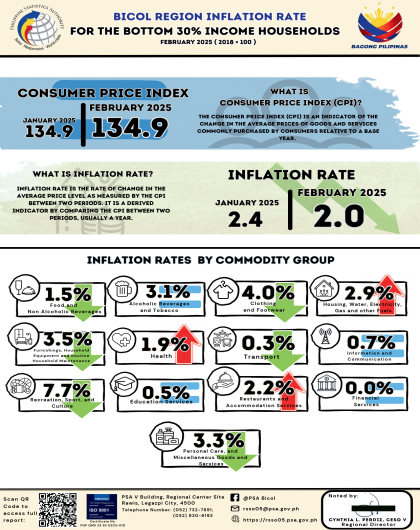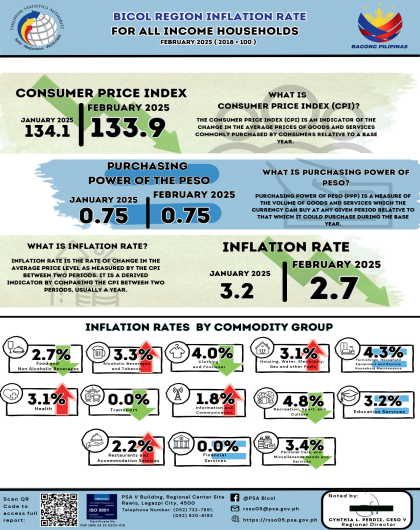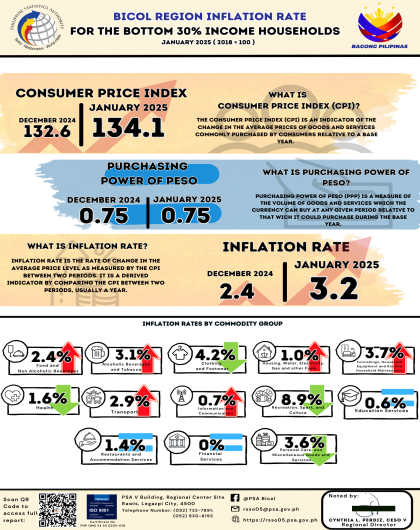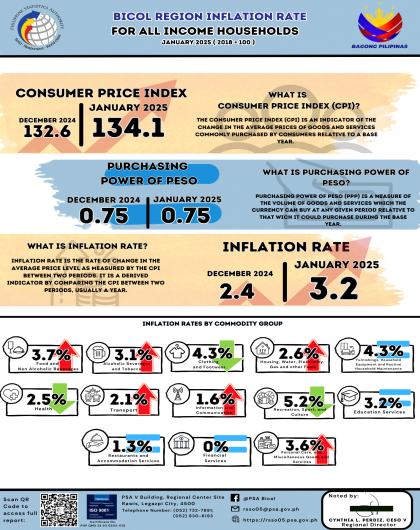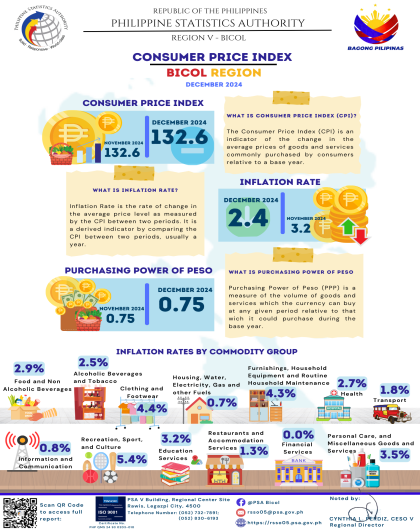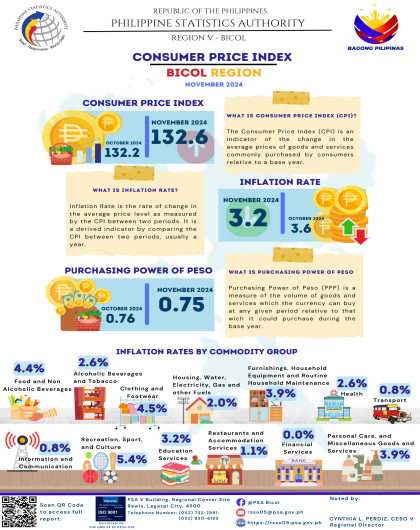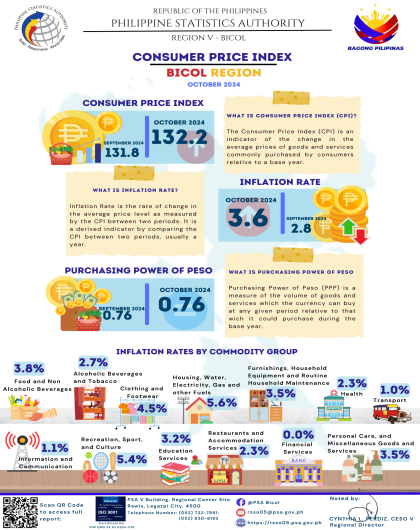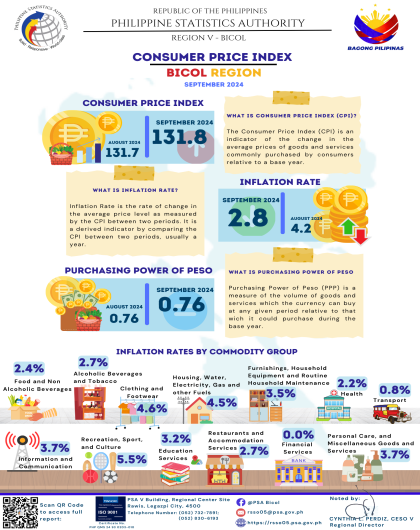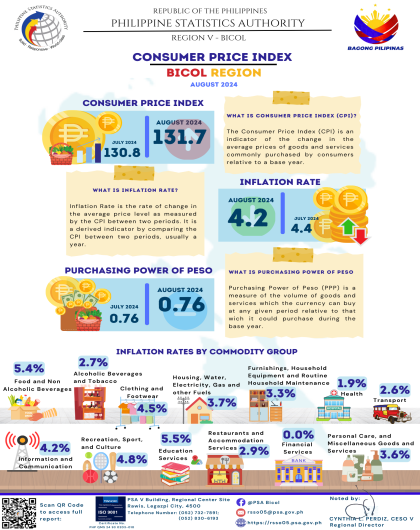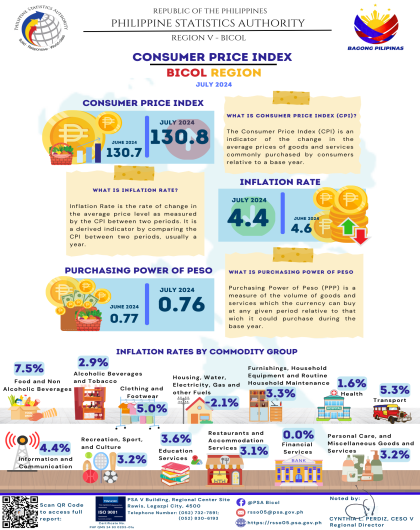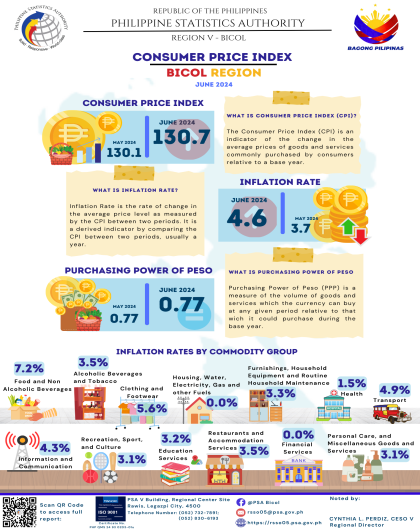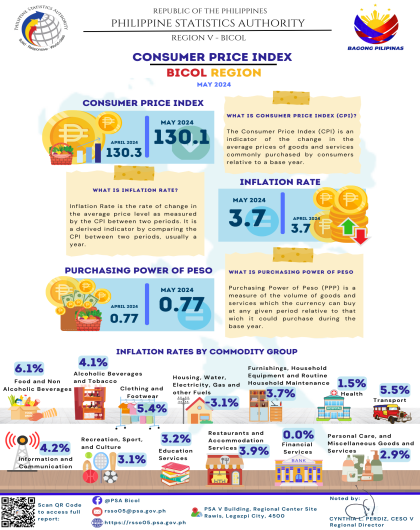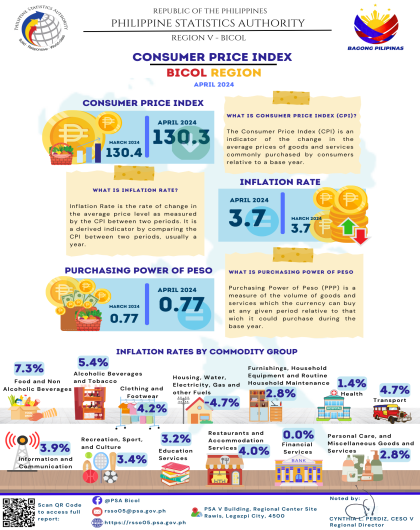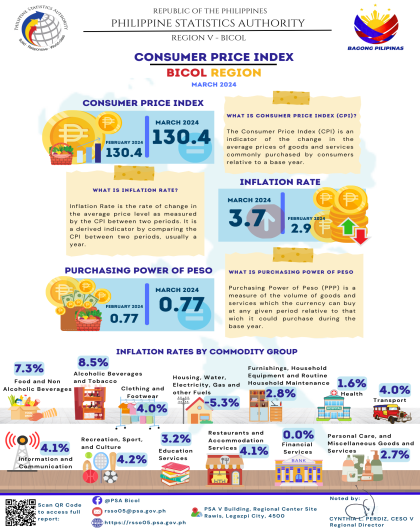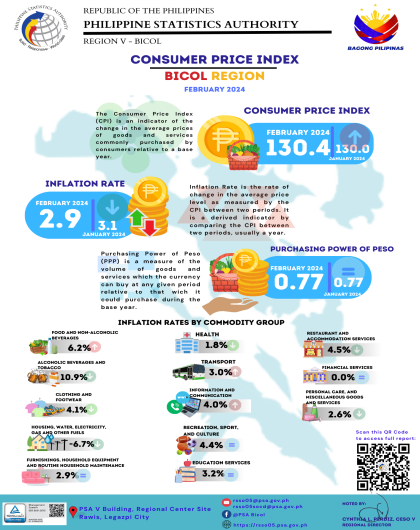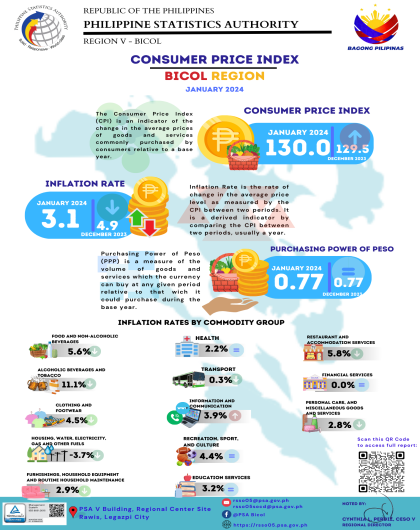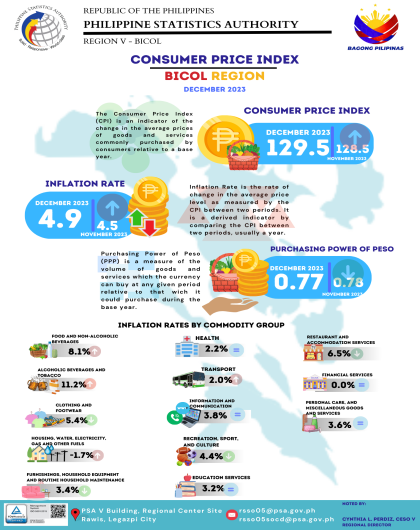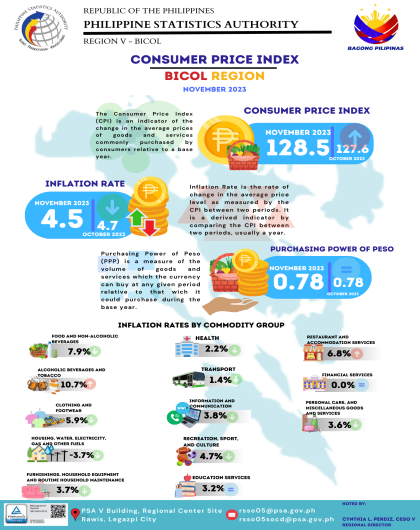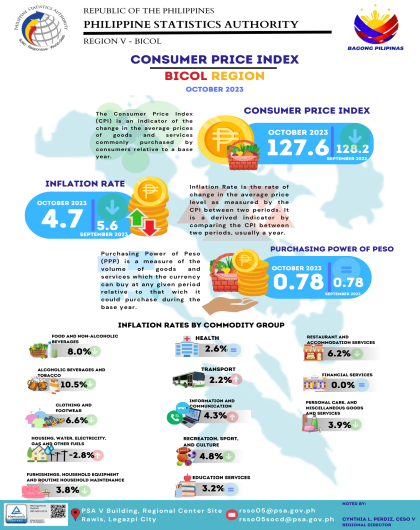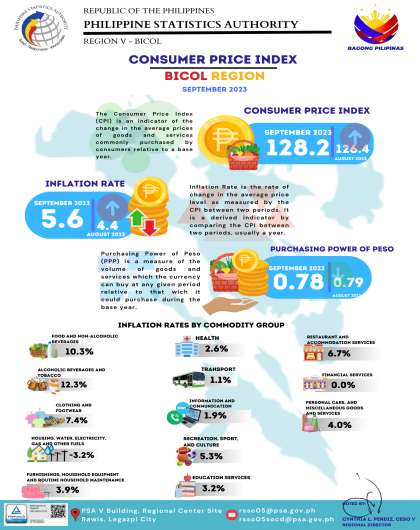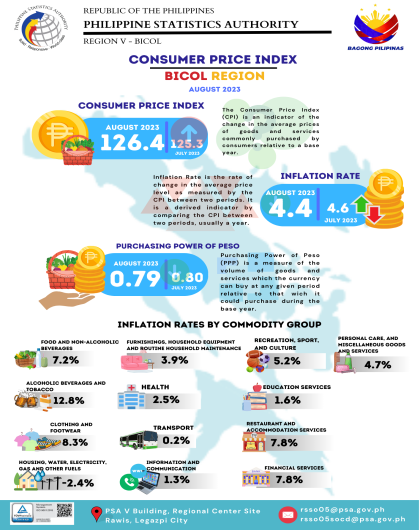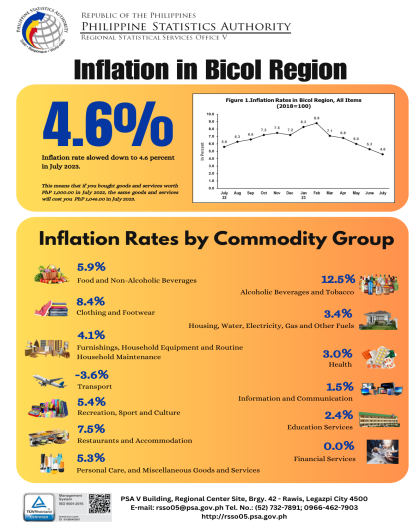The headline inflation in Camarines Sur decreased to 3.9 percent in November 2024 from 5.1 percent recorded in October 2024. This brings the provincial average inflation from January to November 2024 at 4.3 percent. In addition, the inflation rate in November 2024 was lower by 1.2 percentage points than the inflation rate recorded in November 2023 at 4.4 percent.
I. Main Contributors to the Headline Inflation
The main contributor to Camarines Sur’s overall inflation on November 2024 was Food and Non-alcoholic Beverages with an inflation rate of 5.5 percent. This equates to a 62.7 percent share or 2.45 points contributing to the province's inflation. The main contributor to the inflation in this commodity group is Rice with a 6.4 percent inflation rate. This accounts for 20.2 percent share, or 0.79 points.
Housing, Water, Electricity, Gas and Other Fuel was the second contributor to the province’s inflation rate with a 14.5 percent share or 0.57 points, while the third primary driver was Clothing and Footwear with a 5.9 percent share or 0.23 points.
II. Main Drivers to the Downtrend of the Headline Inflation
The downtrend in the overall inflation in November 2024 was primarily influenced by the slower year-on-year increase in Housing, Water, Electricity, Gas and Other Fuels at 2.9 percent inflation from 8.4 percent in the previous month. The main contributor to the inflation in this commodity group is Electricity which decreased by 44.2 percentage points from 59.8 percent recorded in October 2024 to 15.6 percent in November 2024.
The second contributor in the downtrend of the inflation is the slower increase in Transport which recorded 2.2 percent inflation in November 2024 from 4.6 percent in October 2024.
In addition, inflation rate in the following commodity groups also recorded a slower increase in prices:
1. Alcoholic Beverages and Tobacco, 2.5 percent; and
2. Clothing and Footwear, 7.2 percent;
3. Information and Communication, -0.1 percent;
4. Recreation, Sport and Culture, 3.2 percent.
On the other hand, the following commodity groups registered a faster increase in the inflation rate during the month: Food and Alcoholic Beverages, 5.5 percent; Furnishings, Household Equipment and Routine Household Maintenance, 2.7 percent; Health, 3.2 percent; and Personal Care, and Miscellaneous Goods and Services, 2.7 percent
Meanwhile, Financial Services recorded zero percent annual growth, while the following commodities retained the previous month’s inflation rate:
1. Education Services, 2.7 percent; and
5. Restaurants and Accommodation Services, 0.8 percent.
Purchasing Power of Peso (PPP) is inversely related to inflation rate. Thus, as the inflation rate increases, PPP declines. Figure 4 shows that in Camarines Sur, PPP has been decreasing on the average of 0.04 annually from 2018 to 2023. The PPP in 2023 was 0.78. This implies that the PhP1.00 in 2018 as the base year, values only PhP0.78 in 2023.
CONSUMER PRICE INDEX (CPI)
The CPI is a measure of the changes in the average price level of goods and services that most people buy for their day-to-day consumption. It measures the composite change in the consumer prices of various commodities over time.
COMPONENTS OF CPI:
A. Base Period
The reference date or base period is the benchmark or reference date or period at which the index is taken as equal to 100. Starting February 2022, the base period is 2018.
B. Market Basket
A sample of the thousands of varieties of goods purchased for consumption and services availed by the households in the country selected to represent the composite price behaviour of all goods and services purchased by consumers.
C. Weighting System
The weighting pattern uses the expenditures on various consumer items purchased by households as proportion to total expenditure.
D. Formula
The formula used in computing the CPI is the weighted arithmetic mean of price relatives, the Laspeyre’s formula with a fixed base year period (2018) weights.
E. Geographic Coverage
CPI values are computed at the national, regional, and provincial levels, and for selected cities.
INFLATION RATE
The inflation rate is the annual or monthly rate of change of the CPI expressed in percent. Inflation is interpreted in terms of declining purchasing power of money.
HEADLINE INFLATION RATE
The headline inflation rate refers to the rate of change in the CPI, a measure of the average standard “basket” of goods and services consumed by a typical family.
YEAR-ON-YEAR INFLATION RATE
Year-On-Year Inflation Rate is the annual percentage change of CPI. For example, the percentage change of CPI between November 2023 and November 2024.
MONTH-ON-MONTH INFLATION RATE
Month-On-Month Inflation Rate is the monthly percentage change of CPI. For example, the percentage changes of CPI between November 2024 and October 2024.
PURCHASING POWER OF PESO (PPP)
The purchasing power of peso (PPP) shows how much peso in the base period is worth in the current period. It is computed as the reciprocal of the CPI for the period under review multiplied by 100.
For example, the PhP 1.00 in 2018 is valued only at PhP 0.78 in 2023.


